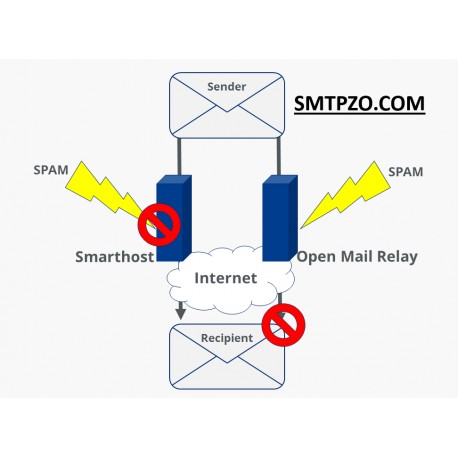No products
 View larger
View larger
The Risks and Considerations of Having an Open SMTP Server
New product
The Risks and Considerations of Having an Open SMTP Server
10000 Items
More info
On earth of email communication, SMTP (Simple Mail Transfer Protocol) may be the backbone that helps emails travel in one server to another. Some email servers require authentication for sending messages, an open SMTP server allows anyone to send emails without the need for a username or password. While it could seem such as a convenient solution for sending emails, open SMTP servers have significant risks that could jeopardize both security and reputation.
What is an Open SMTP Server?
An open SMTP server is really a mail server that does not require authentication to send emails. This means that anyone who knows the server's address can hook up to it and send emails without needing to log in. Previously, this feature was used to make sending emails easier, particularly for users who didn't have their very own dedicated email server. However, today, open SMTP servers are increasingly seen as a protection liability.
The Risks of Using an Open SMTP Server
Spam and Abuse: One of the biggest difficulties with open SMTP servers is that they may easily be exploited by spammers. Since these servers don't require authentication, malicious users can send a sizable volume of spam or unsolicited emails. Consequently, the server can be blacklisted by email service providers, making it difficult for legitimate users to send emails.
Security Vulnerabilities: Open SMTP servers are prone to misuse by hackers. These servers can be leveraged to distribute malware, phishing attempts, as well as launch DDoS (Distributed Denial-of-Service) attacks. Without proper authentication and security measures, sensitive information may be compromised.
Damage to Reputation: If your email domain is associated having an open SMTP server, your reputation could be severely damaged. Emails sent from an open SMTP server tend to be more probably be flagged as spam, and your IP address or domain may end on global blacklists, impacting email deliverability.
How to Protect Yourself from Open SMTP Servers
To ensure safe and reliable email communication, it is essential in order to avoid using open SMTP servers. Instead, go for authenticated SMTP services.These services require login credentials, which prevent unauthorized users from sending emails. Additionally, modern SMTP servers employ encryption protocols like SSL/TLS, which protect the integrity and confidentiality of email content.
If you're running your personal SMTP server, be sure to configure it securely. Including setting up authentication, implementing anti-spam measures such as for example SPF (Sender Policy Framework), and DKIM (DomainKeys Identified Mail), and ensuring encryption is enabled.
Conclusion
While open SMTP servers once offered a simple solution for email transmission, their risks far outweigh their convenience. From being a gateway for spam to exposing sensitive data, the usage of open SMTP servers is no further recommended. By choosing authenticated and secure SMTP services, you can protect your communications, make sure your emails are delivered safely, and maintain an excellent reputation in the digital world.


